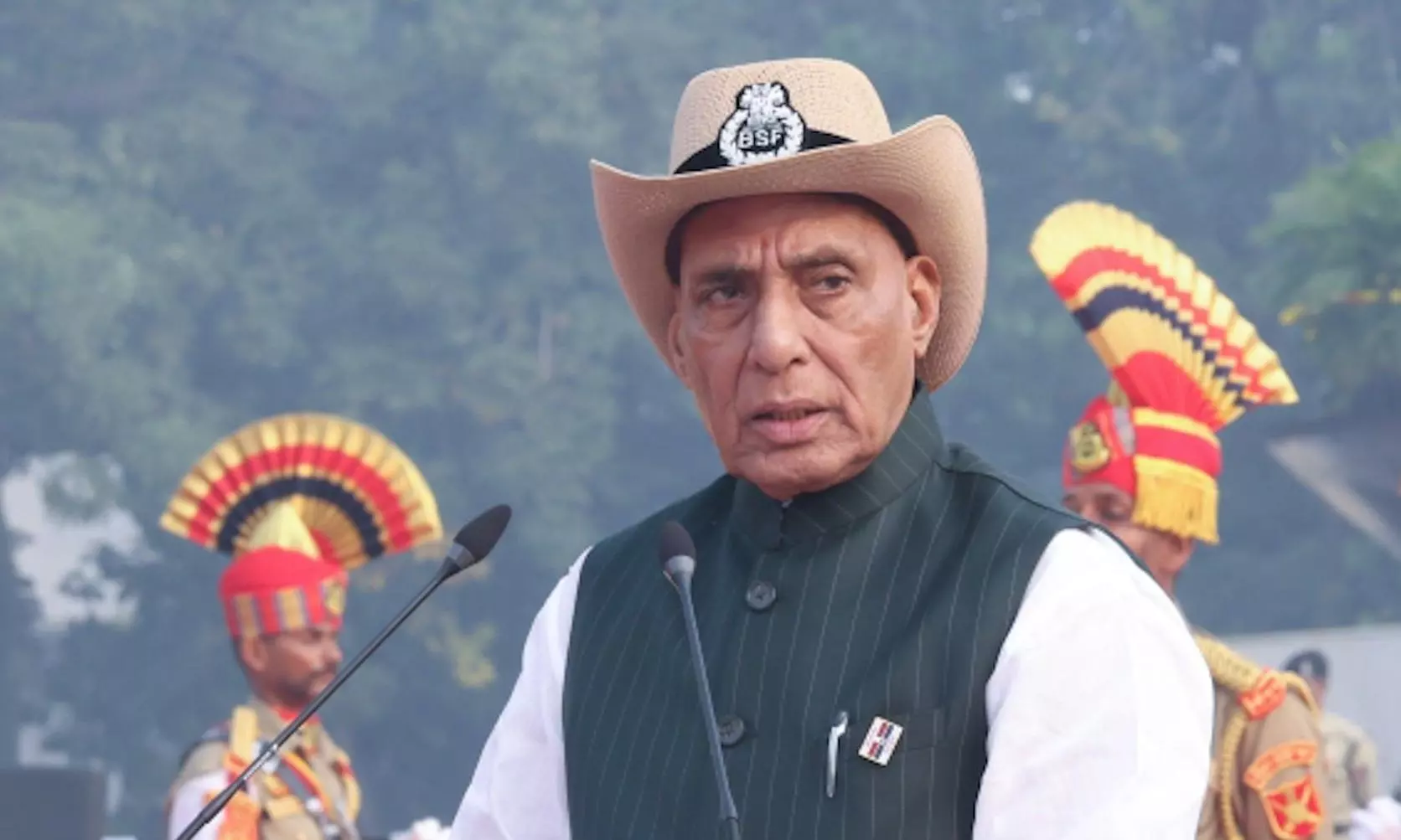
Border instability fuels new types of crime, says Rajnath
Defence Minister Rajnath Singh lauds police for ensuring internal security; vows to end Naxal problem by March 2026 on Police Commemoration Day

Defence Minister Rajnath Singh, speaking on Police Commemoration Day on Tuesday (October 21), lauded the contribution of the police force in ensuring the nation's internal security. He also listed several initiatives taken to modernise the department with state-of-the-art weaponry under the leadership of Prime Minister Narendra Modi.
Laying a wreath at the National Police Memorial in New Delhi, Singh said the military and police function on different platforms, but their mission is the same — to protect the nation. He added that "balancing the external and internal security of the nation is more important than ever to have a Vikshit Bharat by 2047".
He also praised the police department's contribution on the ongoing operation against Naxalism and preventing crime while maintaining trust in society.
Also Read: PM Modi writes to citizens on Diwali, highlights Op Sindoor, GST reforms
New types of crime emerge
Speaking on the present-day challenges, the defence minister noted that new types of crime, terrorism and ideological wars tend emerge within society when there is instability on the borders. He added that crime had become more organised, invisible and complex, and its purpose was to create chaos in society, undermine trust and challenge the stability of the nation.
Singh lauded the police for carrying out their duty to prevent crime and uphold public trust.
While addressing the police personnel present at the event, Singh said, "If people are sleeping peacefully today, it is due to their confidence in our vigilant armed forces and alert police. This confidence is the foundation of our country's stability".
Also Read: Op Sindoor just a trailer; every inch of Pakistan within BrahMos range: Rajnath
Rajnath Singh paid tributes to police and paramilitary forces personnel for their service to the nation on the occasion of Police Commemoration Day. Photo: X/@rajnathsingh
'Naxal problem will end by next March'
Singh credited the police personnel for their efforts to mitigate the Naxalite movements, which had been a major internal security challenge for a long time, in coordination with paramilitary forces in the Naxal-affected areas. He said the Naxalite movement is now on the verge of becoming history, and the Union government aims to eliminate the Naxal menace by the end of March 2026.
Singh asserted that the organised efforts of police, CRPF, BSF and local administration ensured that the problem did not escalate further, and the people in the left-wing extremism-affected areas breathed a sigh of relief. He also said that due to the tireless efforts of the security forces.
"Several top Naxalites have been eliminated this year. Those who previously took up arms against the state are now surrendering and joining the mainstream of development. The number of districts affected by left-wing extremism has come down drastically, and it is now becoming an educational hub. Areas that were once known as the red corridor have now transformed into growth corridors. Our police and security forces have contributed significantly to this success," Singh added.
Also Read: Battle for Bastar Part 3: Blitzkrieg in the ‘forbidden hills’
Police Commemoration Day
Police Commemoration Day is observed every year in memory of 10 Central Reserve Police Force (CRPF) personnel who were killed on this day in 1959, in Ladakh’s Hot Springs area during an ambush by Chinese troops.
Singh said that for a long time, as a nation, police contributions were over looked. However, he noted Prime Minister Narendra Modi-led government is committed to ensuring national security.
"Under the leadership of Modi, the government established the National Police Memorial in 2018 to honour the memories of our police forces," he said, adding that, "the police have been provided with state-of-the-art weapons and improved facilities. They now have modern equipment such as surveillance systems, drones, forensic labs and digital policing".
(With agency inputs)

